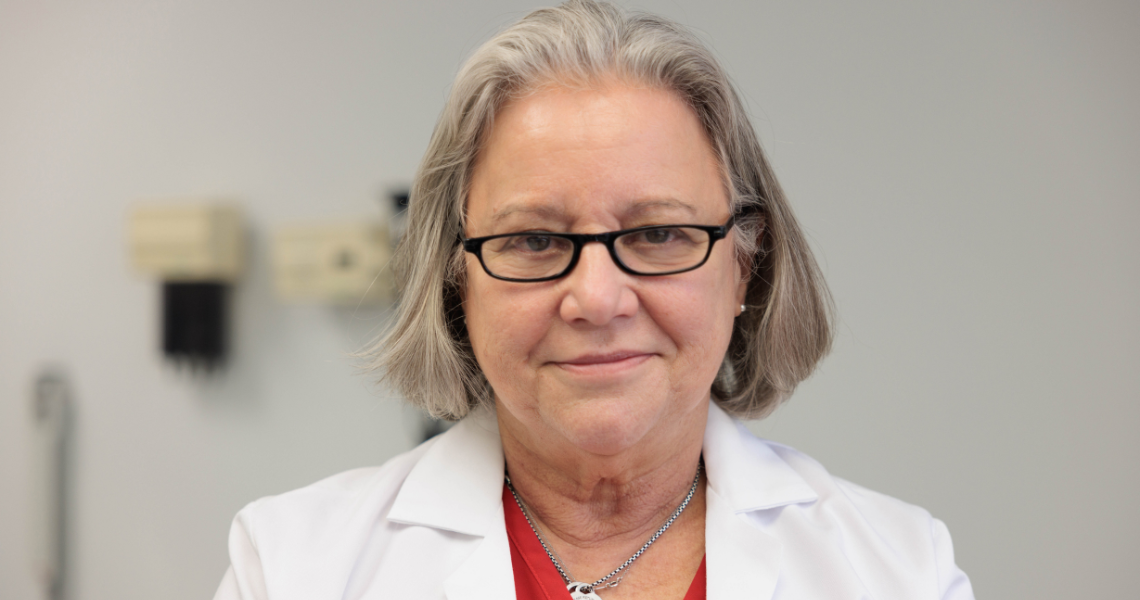With the arrival of cooler mornings and pumpkin spiced lattes comes the annual sniffles, chills, and sneezes of flu season and a timely reminder that vaccines can protect you and your loved ones from the worst of what illnesses have to offer. Here, Janet C. Austen, CRNP-FNP, primary care family nurse practitioner with more than 45 years of clinical experience, dispels some vaccine myths and discusses the importance of immunization against diseases such as the flu, COVID-19, tetanus; measles, mumps, and rubella; and other communicable illnesses.
Q: Is there a difference between immunization and vaccination?
Austen: There is no difference between immunization and vaccination. The CDC defines vaccination as the act of introducing a vaccine into the body to produce protection from a specific disease, and immunization as the process of protecting against disease through vaccination. We use vaccinations to increase peoples immunities and help prevent them from getting the disease.
Q: How do vaccines work? Can I get sick from a vaccine?
Austen: Vaccines work by increasing your immunity. This is done with either live or inactive vaccines that stimulate the body’s immune response to create antibodies that fight illness.
If a vaccine uses a live virus, it’s a weakened or an attenuated version of the actual disease – this provides longer immunity – including those such as the MMR (measles, mumps, and rubella) and Varicella (chickenpox) vaccines.
Inactivated viruses are dead viruses – they still increase immunity, but the response doesn’t last as long, which is one reason why we have to get regular booster shots, such as annual fu and COVID-19 vaccines.
The live viruses sometimes can make you slightly ill – usually low-grade fevers and muscle aches – inactivated viruses, on the other hand, don’t have that effect.
Q: Why do some vaccines require multiple doses or annual boosters, while others do not?
Austen: The repeat doses are necessary for inactivated vaccines – they require repeat vaccination as the immunity is usually lost in about six months.
Q: What are some vaccines people should stay on top of through adulthood, but frequently forget about?
Austen: The vaccines people frequently forget about are the Td (tetanus) and the Tdap (tetanus and pertussis). Pertusis is whooping cough – there was an outbreak in California in 2010, with more than 9,000 cases reported, which was the most in 60 years according to the CDC. In 2014 there was another outbreak with more than 11,000 cases reported. Now, adults receive a booster of this vaccine with their tetanus vaccine in their adult life – with a return to the regular tetanus every 10 years.
Q: Are there new vaccines available that patients should be getting?
Austen: The new vaccines available include the mRNA COVID-19 boosters by both Moderna and Pfizer that were recently approved by the FDA. Both vaccines target the XBB variants of the omicron strain that has become dominant in the United States. Those should be available later this month; everyone should get a COVID vaccine booster.
Another new vaccine available is the first respiratory syncytial virus (RSV) vaccine the FDA approved this past spring. Adults over 60 years old, particularly those with underlying health conditions such as heart or lung disease, or those with weakened immune systems, should get the RSV vaccine. Of course, in our area, flu season begins at the start of autumn and usually peaks between December and February. An annual flu shot is always an important preventative tool and the CDC recommends people get vaccinated by the end of October.
Q: Can my primary care provider meet all of my vaccination needs, or do I have to go to a specialist?
Austen: Some primary care providers carry all or most of the above vaccines, and now pharmacies carry many of the vaccines. There also are options, such as the GW MFA Travelers’ Clinic, that carry all of the vaccines.
To make an appointment with a primary care physician at the GW MFA, call 202-741-2222, or for more information visit GW Flu Services.




